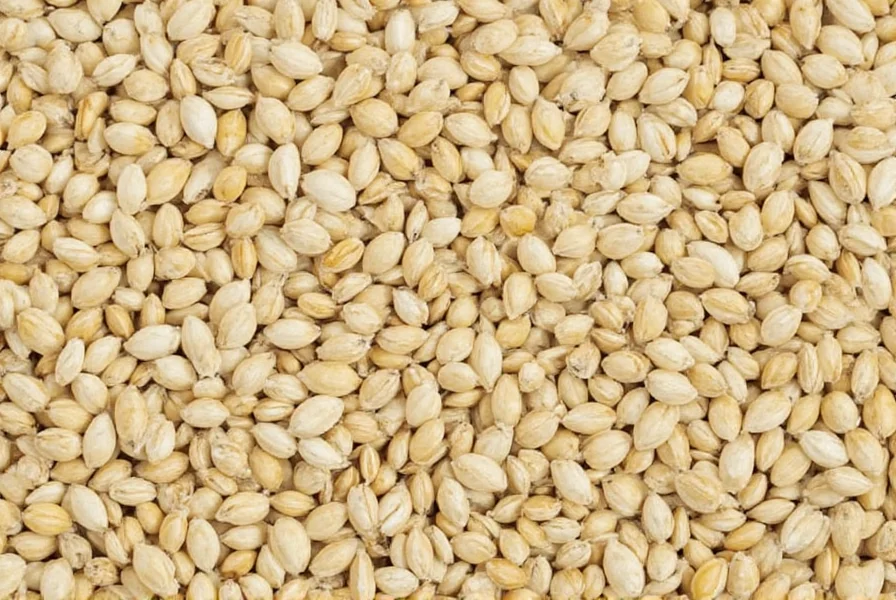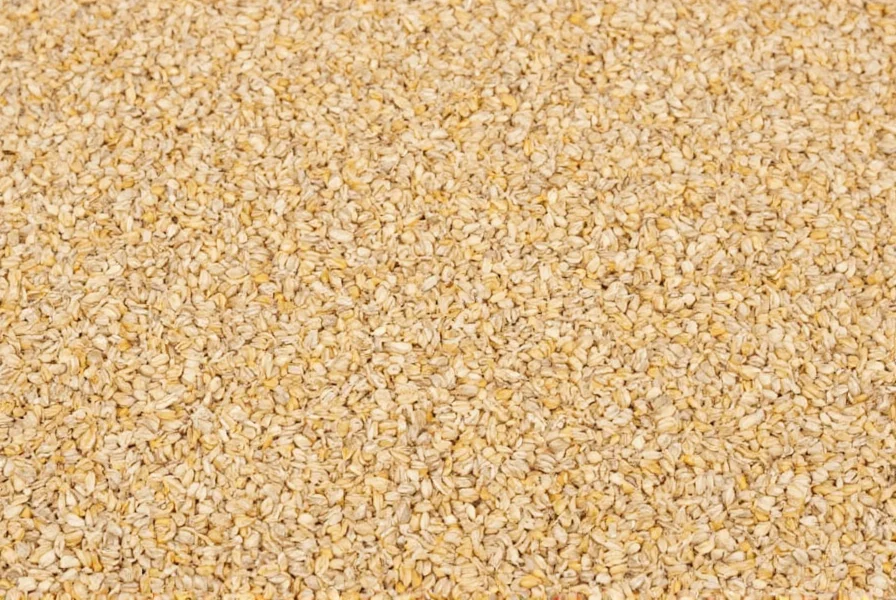White cumin seeds, scientifically known as Nigella sativa (despite their dark color), have been used for centuries in traditional medicine across Middle Eastern and South Asian cultures. Often confused with regular cumin (Cuminum cyminum), these distinct seeds pack a powerful nutritional profile that modern research continues to validate. Let's explore the evidence-based benefits of incorporating white cumin seeds into your wellness routine.
Understanding White Cumin Seeds: More Than Just a Spice
White cumin seeds, commonly called black seed or kalonji, are small black seeds from the Nigella sativa plant. Don't let the "white" in the name confuse you—the seeds themselves are actually black, but the "white" designation often refers to the seed's interior when cracked open. These seeds contain over 100 bioactive compounds, with thymoquinone being the most extensively studied for its health-promoting properties.
Scientifically Supported Health Benefits of White Cumin Seeds
Powerful Antioxidant Protection
White cumin seeds rank among nature's most potent antioxidant sources. A 2020 study published in Oxidative Medicine and Cellular Longevity demonstrated that thymoquinone effectively neutralizes free radicals and boosts the body's natural antioxidant enzymes like glutathione. This antioxidant capacity helps protect cells from oxidative stress, potentially reducing the risk of chronic diseases including heart conditions and certain cancers.

Natural Anti-Inflammatory Effects
Chronic inflammation underlies many modern health issues. Research in the Journal of Ethnopharmacology confirms that white cumin seed extract significantly reduces inflammatory markers like TNF-alpha and IL-6. People managing conditions like arthritis or asthma may find these seeds particularly beneficial as part of a comprehensive approach to inflammation management.
Digestive Health Enhancement
Traditional medicine has long used white cumin seeds for digestive issues, and contemporary science supports this application. A clinical trial involving 88 participants with functional dyspepsia showed that white cumin seed oil significantly improved symptoms like bloating, heartburn, and early satiety compared to placebo. The seeds stimulate digestive enzymes and may help maintain healthy gut microbiota.
| Nutritional Profile of White Cumin Seeds (per 100g) | Amount |
|---|---|
| Calories | 375 kcal |
| Protein | 19.8 g |
| Fat | 35.3 g |
| Carbohydrates | 45.4 g |
| Dietary Fiber | 11.3 g |
| Calcium | 279 mg |
| Iron | 66.4 mg |
| Magnesium | 379 mg |
Blood Sugar Regulation Support
For those monitoring glucose levels, white cumin seeds show promising effects. A meta-analysis of 12 clinical trials found that Nigella sativa supplementation significantly reduced fasting blood glucose, HbA1c, and insulin resistance in people with type 2 diabetes. The seeds appear to enhance pancreatic beta-cell function and improve insulin sensitivity—making them a valuable dietary addition for metabolic health.
Cholesterol Management Properties
Cardiovascular health benefits represent another well-documented advantage of white cumin seeds. Research published in the Journal of Translational Science demonstrated that daily consumption of 2-3 grams of white cumin seed powder over 8 weeks significantly reduced total cholesterol, LDL ("bad" cholesterol), and triglycerides while increasing HDL ("good" cholesterol). These effects appear connected to the seeds' ability to inhibit cholesterol absorption in the gut.
How to Incorporate White Cumin Seeds Into Your Diet
Maximizing the benefits of white cumin seeds requires proper usage. Here are practical, evidence-based suggestions:
- Raw consumption: Chew 1/2 to 1 teaspoon of raw seeds daily on an empty stomach for maximum bioavailability of active compounds
- Seed oil: Use cold-pressed white cumin seed oil (1-2 teaspoons daily) in salad dressings or take directly
- Culinary applications: Add to breads, curries, or roasted vegetables—though heat reduces some therapeutic compounds
- Infused water: Soak 1 teaspoon of seeds in water overnight and drink the strained liquid in the morning
Safety Considerations and Potential Side Effects
While generally safe for most people, white cumin seeds warrant some precautions:
- May lower blood pressure excessively when combined with hypertension medications
- Potential interaction with diabetes medications requiring blood sugar monitoring
- Not recommended during pregnancy in medicinal amounts due to potential uterine stimulation
- Some individuals may experience mild digestive upset when first introducing the seeds
Always consult with your healthcare provider before using white cumin seeds therapeutically, especially if you have existing health conditions or take prescription medications. These seeds complement—but don't replace—standard medical treatments.
Conclusion: Evidence-Based Wellness from Ancient Wisdom
White cumin seeds represent a remarkable intersection of traditional knowledge and modern science. While not a miracle cure, their scientifically validated benefits for antioxidant protection, inflammation reduction, digestive health, blood sugar regulation, and cholesterol management make them a valuable addition to a health-conscious diet. As research continues to uncover more about these potent seeds, their role in evidence-based wellness practices will likely expand. Remember that consistent, moderate consumption as part of an overall healthy lifestyle yields the best results when exploring the benefits of white cumin seeds for natural health support.
Frequently Asked Questions About White Cumin Seeds
What's the difference between white cumin seeds and regular cumin?
White cumin seeds (Nigella sativa) are often confused with regular cumin (Cuminum cyminum), but they're completely different plants. White cumin seeds are small black seeds from the Ranunculaceae family, while regular cumin comes from the Apiaceae family. White cumin has a more pungent, slightly bitter flavor compared to regular cumin's earthy warmth, and contains unique compounds like thymoquinone not found in regular cumin.
How much white cumin seeds should I consume daily for health benefits?
Research suggests 1-3 grams (approximately 1/2 to 1 teaspoon) of whole seeds or powder daily provides therapeutic benefits without adverse effects for most adults. Clinical studies typically use doses between 1-3 grams daily. Start with smaller amounts to assess tolerance, and consult your healthcare provider for personalized recommendations, especially if managing specific health conditions.
Can white cumin seeds help with weight loss?
Some studies indicate white cumin seeds may support weight management through multiple mechanisms including improved metabolism, reduced inflammation, and better blood sugar control. A 2013 clinical trial found that participants taking white cumin seed extract lost significantly more weight than the placebo group. However, these seeds work best as part of a comprehensive approach to weight management that includes proper nutrition and exercise.
How long does it take to see benefits from white cumin seeds?
Most research shows noticeable benefits after 4-8 weeks of consistent daily use. Digestive improvements may appear within days, while metabolic benefits like blood sugar and cholesterol improvements typically require 6-8 weeks. The antioxidant and anti-inflammatory effects work continuously but may take several weeks to manifest as measurable changes. Consistency is key when exploring the long-term health benefits of white cumin seeds.
Are there any drug interactions with white cumin seeds I should know about?
White cumin seeds may interact with certain medications, particularly those for diabetes (potentially enhancing blood sugar lowering effects) and hypertension (possibly causing excessive blood pressure reduction). They may also affect how the liver processes certain medications. If you take prescription medications, especially for blood sugar or blood pressure management, consult your healthcare provider before using white cumin seeds medicinally to avoid potential interactions.











 浙公网安备
33010002000092号
浙公网安备
33010002000092号 浙B2-20120091-4
浙B2-20120091-4